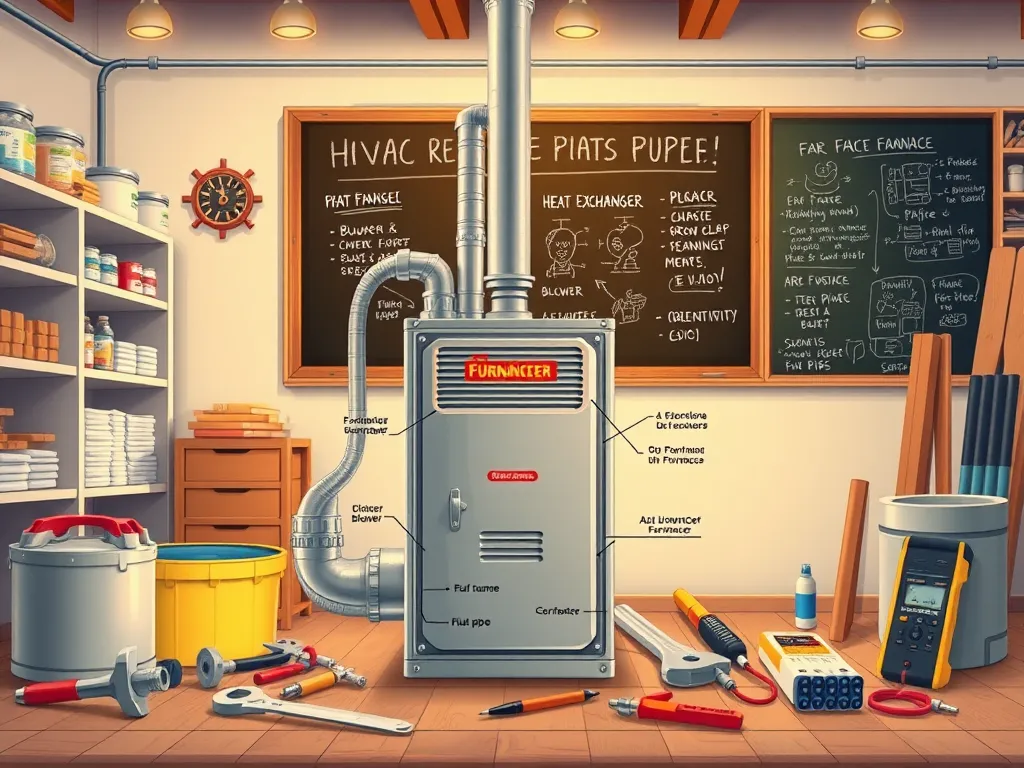A Comprehensive Guide to Furnace Replacements

A Comprehensive Guide to Furnace Replacements
Furnace replacements are an essential part of maintaining a comfortable and energy-efficient home. As furnaces age, they become less efficient and reliable, leading to increased energy bills and frequent breakdowns. A furnace replacement can help improve energy efficiency, reduce heating costs, and provide reliable heating performance. In this comprehensive guide, we will explore the benefits of furnace replacements, different types of furnace replacements, factors to consider when choosing a new furnace, signs that it's time for a replacement, the furnace replacement process, and how to find the right contractor for the job.
When it comes to preserving the integrity of your heating system, furnace replacements play a key role. If you've been experiencing spaces that are too cold, or your utility bills keep rising, it's time to seek professional help. Shorty's Plumbing is a reliable provider of such services, allowing homeowners to enjoy a comfortable living environment.
One of the key benefits of furnace replacements is improved energy efficiency. Older furnaces tend to have lower efficiency ratings, meaning they use more energy to produce the same amount of heat. This leads to higher energy bills and unnecessary energy waste. By replacing an old furnace with a newer, more energy-efficient model, homeowners can reduce their energy consumption and save money in the long run.
Cost savings are another advantage of furnace replacements. While the upfront cost of a new furnace may seem high, the long-term savings can be significant. Energy-efficient furnaces consume less fuel or electricity, resulting in lower monthly heating bills. Additionally, modern furnaces often come with advanced features such as programmable thermostats and zoning systems, allowing homeowners to further optimize their heating usage and save money.
In addition to energy efficiency and cost savings, furnace replacements can also improve indoor air quality. Older furnaces may not effectively filter out dust, allergens, and other pollutants, leading to poor air quality. Newer models often come with advanced filtration systems that remove harmful particles from the air, providing cleaner and healthier indoor environments.
Reliable heating performance is another benefit of furnace replacements. Older furnaces are more prone to breakdowns and may struggle to maintain a consistent temperature throughout the home. This can result in cold spots, uncomfortable living conditions, and the need for frequent repairs. By investing in a new furnace, homeowners can enjoy reliable and consistent heating performance, ensuring a comfortable living environment.
Benefits of Furnace Replacements
1. Energy efficiency: Newer furnaces have higher efficiency ratings, reducing energy consumption and lowering heating costs.
2. Cost savings: Energy-efficient furnaces result in lower monthly heating bills, providing long-term cost savings.
3. Improved indoor air quality: Advanced filtration systems in new furnaces remove pollutants and allergens, improving indoor air quality.
4. Reliable heating performance: Newer furnaces provide consistent heating performance and are less prone to breakdowns.
5. Increased home value: A new furnace can increase the value of a home, making it more attractive to potential buyers.
Types of Furnace Replacements
There are several types of furnace replacements available, each with its own advantages and considerations.
The idea of Furnace Replacements can often seem intimidating. This could include a system overhaul or simply upgrading to a model that's more efficient. Combine this with the technical complexities, and it quickly becomes a task best suited for professionals like the team at Plumbing Plus NY that could make the process a whole lot easier.
Gas furnaces: Gas furnaces are common in many households and offer efficient and cost-effective heating. They require a natural gas or propane supply and are known for their quick heat production.
Electric furnaces: Electric furnaces are typically more expensive to operate but are suitable for areas where natural gas or propane is not available. They are known for their quiet operation and long lifespan.
Oil furnaces: Oil furnaces are less common but are still used in some households. They require an oil supply and may require a storage tank. They tend to have higher installation and maintenance costs.
Dual fuel systems: Dual fuel systems combine a gas furnace with a heat pump, providing efficient heating in moderate climates. They automatically switch between gas and electric heating depending on outdoor temperatures.
Factors to Consider When Choosing Furnace Replacements
Choosing the right furnace replacement involves considering several factors:
Size and capacity: The size of the furnace should be appropriate for the square footage and heating needs of the home.
Energy efficiency ratings: Look for furnaces with high AFUE (Annual Fuel Utilization Efficiency) ratings for optimal energy savings.
Budget: Determine your budget and explore furnace options that fit within your price range including installation costs.
Installation requirements: Consider if the chosen furnace requires any additional installations or modifications to your current heating system.
Manufacturer warranty: Review the warranty coverage and terms offered by different furnace manufacturers.
Signs It's Time for Furnace Replacements
It's important to recognize the signs that indicate it's time for a furnace replacement:
There is a lot to consider when it comes to home furnace replacements . This could involve choosing the right model, reducing energy consumption, or analyzing the costs involved. If you are facing such issues, consider visiting this helpful site that has a wealth of information about maintaining your home's heating system.
Frequent breakdowns: If your furnace requires frequent repairs, it may be more cost-effective to replace it with a new one.
Finding a skilled professional for energy-saving furnace replacements is essential to ensuring the longevity of your heating system. With My Super Service , you'll gain access to a team of experts committed to providing top-quality services that would ultimately result in reduced energy bills and improved home comfort.
Increasing energy bills: As furnaces age, they become less efficient, resulting in higher energy bills.
Efficient furnace replacements are your best defense against the biting cold of the winter months. Providers such as Shorty's Plumbing are a one-stop-shop for heating solutions. Their team helps homeowners select the right furnace, install it properly, and ensure it operates at its peak efficiency.
Uneven heating: If some areas of your home are consistently colder than others, it may indicate that your furnace is struggling to distribute heat evenly.
Noisy operation: Loud or unusual noises coming from your furnace can be a sign of mechanical issues or aging components.
Old age: Furnaces typically last between 15-20 years. If your furnace is nearing the end of its lifespan, it's a good time to consider a replacement.
Furnace Replacement Process
The furnace replacement process involves several steps:
Initial assessment: A professional HVAC technician will assess your current furnace, ductwork, and heating needs.
Experience and qualifications: Choose a contractor with experience and proper qualifications in furnace installations.
Customer reviews and references: Read reviews and seek references to ensure the contractor has a track record of satisfied customers.
Licensing and insurance: Verify that the contractor is licensed and insured to protect yourself from liability.
Price estimates: Get multiple price estimates from different contractors to compare costs and ensure a fair price.
Finding the Right Contractor for Furnace Replacements
Service guarantees: Inquire about any service guarantees or warranties offered by the contractor to protect your investment.
